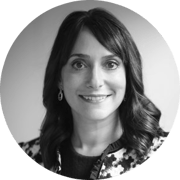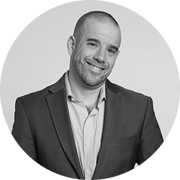 From Bitcoin to blockchain, big data to biometrics, and crowdfunding to cryptocurrency, FinTech is full of notoriously complicated concepts that are constantly evolving. Where does a FinTech newbie even begin to look if they want to break into this innovative area?
From Bitcoin to blockchain, big data to biometrics, and crowdfunding to cryptocurrency, FinTech is full of notoriously complicated concepts that are constantly evolving. Where does a FinTech newbie even begin to look if they want to break into this innovative area?
What The FinTech?
Let's start simple. FinTech – what is it? We got some experts to clue us in. Joshua Ashley Klayman had this to say first of all: “I’m not a very big fan of the term ‘FinTech.’” This is a bit of a surprise, coming from the US head of FinTech and head of blockchain and digital assets at Linklaters. “It’s an incredibly dynamic, fast-moving, innovative space that has the potential to affect the entire economy, and, in my view, depending on the audience and sector, the FinTech label may not necessarily always fully convey that,” says Klayman, who is senior counsel at Linklaters, as well as one of its global tech sector co-leaders. “To some, FinTech may sound like a niche of a niche – the technological aspects of financial services, or the financial applications of technology – potentially making it sound like more of a substantive ‘supporting player’ within the broader future economy. Really, we’re talking about the digital economy itself.”
“FinTech is future-focused, and technology doesn’t necessarily always fit squarely within existing regulatory boxes. As lawyers in this space, we have an exciting opportunity to help influence and shape the future.” [Joshua Ashley Klayman]
Klayman breaks this down: “If we’re going to use the term ‘FinTech,’ in my view, we should define it expansively. When you think of the ‘Fin’, you think of capital – what drives our economy.” That should be combined with the ‘Tech’ part, which is “how we do business – and that’s evolving every day.” Klayman points to the development and convergence of technologies like machine learning, artificial intelligence (AI), internet of things (IoT), autonomous vehicles, blockchain, smart contracts, digital assets, payments innovation, and more. She says “the beauty of this practice is that you get to see just how interrelated these seemingly disparate new technologies are becoming, and how deeply and extensively they may affect our daily lives.” She brings us to the conclusion that“FinTech is future-focused, and technology doesn’t necessarily always fit squarely within existing regulatory boxes. As lawyers in this space, we have an exciting opportunity to help influence and shape the future.”
Michelle Gitlitz is the global head of blockchain and digital assets at Crowell & Moring. “What I find truly exciting is being a part of a larger digital transformation practice where we counsel clients on legal and regulatory issues concerning all types of technologies,” she says. The blockchain and digital assets group at Crowell & Moring deals with autonomous vehicles, digital health, digital advertising, and AI, among other things. On any given day, Gitlitz could be advising on “a technology that improves supply chain management, allows you to spend cryptocurrency at retail stores, or blockchain’s use in advertising.”

“When I spoke to people in the space and heard about the technology they were creating, I thought, ‘Please hire me because I want to be on this journey with you!'” [Michelle Gitlitz]
FinTech? More Like FunTech
Before we get the inside scoop on cracking into the elusive world of FinTech law, let’s hear a bit more about how Michelle Gitlitz and Joshua Ashley Klayman did it. Both of these lawyers lead practices at top firms, yet neither of them started their careers in FinTech. Gitlitz began as a litigator, but change came a-knocking when she attended a party back in 2015 before she’d even heard about blockchain or crypto: “I thought I'd walked into some alternate universe because I was at a Chelsea rooftop bar on a Thursday night [in Manhattan], and the only thing people were talking about was Bitcoin, Ethereum, and mining.” Michelle Gitlitz was struck by the passion in the room about a new form of currency that was built on a relatively new technology – blockchain.
“All of a sudden you become a lot more attractive for in-house roles because you have some subject matter expertise in addition to being a really great litigator.” [Sean Burke]
Struck with a desire to know more, she listened to the conversations around her, absorbing as much knowledge as she could, before going home to read up. “As a securities litigator I thought, ‘These ICOs sure look like securities to me.’ And then I thought about how people would want to spend crypto. That’s when I focused on becoming a payments lawyer.” For the first time in her career, she felt a spark and passion about her practice: “When I spoke to people in the space and heard about the technology they were creating, I thought, ‘Please hire me because I want to be on this journey with you!'”
Gitlitz’s passion was crucial for her to crack into FinTech. Anyone looking to jump from, say, general litigation into FinTech must delve into their research and “find this space really interesting” – this is according to Sean Burke, founder of Whistler Partners (a recruitment firm with expertise in FinTech).
The fact is that FinTech employers just aren’t that keen on hiring generalists. If candidates get expertise in areas like tech transactions, blockchain, cryptocurrency, IP, and regulatory, “all of a sudden you become a lot more attractive for in-house roles because you have some subject matter expertise in addition to being a really great litigator.” Burke says getting this ‘subject matter expertise’ is the game changer.
Klayman landed in the FinTech world after a heavy research stint, but unlike Gitlitz, her initial drive to understand it came from a place of concern. When she was a pure transactional finance and corporate attorney, representing “a lot of big banks and big companies in big deals,” she started to notice more clients were paying attention to something called smart contracts (a self-enforcing contract that eliminates the need for third parties). “At the time, it appeared to me potentially to be a threat,” Klayman recalls. “Clients were talking about using these mysterious smart contracts to reduce their dependence on lawyers.” Her concern prompted her to research the technology: “As I delved deeper and learned more about blockchain and digital assets, it reignited in me a passion that I had felt in college, when I’d been fascinated by things like game theory and complexity and the Santa Fe Institute.” The lightbulb moment came when she realized that the tech she was learning about had a connection with the finance work she’d been doing all along – maybe her practice could involve both. She started networking and gaining initial clients in the space, while launching and growing a top blockchain practice at her then firm. In the end, she struck out on her own. “I had my own law firm and my own consulting firm, which allowed me a great deal of flexibility in terms of the types of deals I could work on – although I really missed being part of a larger team." Returning to BigLaw was a big decision. It’s a huge lifestyle change from the ‘be your own boss’ dream. But Klayman says the guidance she got from Whistler Partners opened her eyes to “the possibilities of having a bigger platform for what I had built and joining a world-class firm with a top global FinTech practice.”
Klayman now heads up Linklaters’ FinTech practice in the US, and credits Whistler with where she is today: “Without them, I don't know that I would have gone back to a big firm, and I'm so happy that I did. I love my colleagues and feel incredibly grateful and lucky to do work that I believe in as part of a phenomenal, collaborative worldwide team.”
Candidates need “the mental flexibility to jump into new and novel projects where the law is sometimes unsettled, or you are in unchartered territory.” [David Brill]
En Route To Recruit
David Brill is the eponymous founder of Brill Advisors – a FinTech consulting firm. Among his previous experience, he worked as a senior lawyer at media conglomerate Thomson Reuters, and as general counsel of American Stock Transfer & Trust Company. Building on his experience working with federal and state banking regulators, Brill obtained money transmitter licenses for one of the first US licensed cryptocurrency exchanges – this process sparked his deep interest in blockchain. “For me it was just a natural evolution of my interest in financial services and technology.”
Brill just finished his time as general counsel of a blockchain company. In that role, “I would monitor every regulatory development because I was wearing both my risk management and regulatory hat. At the same time, I was also working on getting a new blockchain application to market, monetizing it, and then all things in between (because being in-house, you do everything).” Within the first month on the job, Brill was working on partnership agreements, novel IP issues regarding blockchain, patent and copyright matters, and countless other agreements. “I drafted one of the first SaaS [software as a service] agreements that sits on top of the blockchain,” he says. Suffice to say, Brill’s day-to-day was “constantly in flux and every day was a new challenge!” He tells us that’s what in-house lawyers should expect at small- to medium-size companies.
So when it comes to finding new talent, candidates need “the mental flexibility to jump into new and novel projects where the law is sometimes unsettled, or you are in unchartered territory.” David Brill says “hiring somebody to work with me who is siloed and doing the same projects over and over again isn't as much use to me compared to someone who is working in a cross-disciplinary practice.”
Sean Burke recalls a real life example of this, when he placed a candidate with a quant fund (a type of investment fund) that was fairly traditional (“they still ask for SAT scores”). But even this old school company realized that “compared to someone at one of the big Wall Street firms that have been doing leveraged buyouts over and over, it makes more sense to hire from firms that may not be as high in the prestige pecking order.” The fund ended up scouting from firms that “do more mid-market deals, because the deals are not cookie-cutter and the clients have never done that type of deal before, so the lawyer is acting more like a GC advising them.” Here, multi-disciplinary experience wins out over a prestigious name on your resume. Despite the mind-bogglingly complicated technologies FinTech involves, perhaps the practice is more accessible than it first seems.
Gitlitz also points out that these days, fewer junior associates want to toil away for eight years to achieve partner status. “They're looking for an opportunity to do something interesting that meets their own personal needs,” she says. An “innovative and cross-disciplinary” practice like FinTech can give juniors the flexibility to keep their options open. But while these non-traditional ‘interdisciplinary’ structures in law firms have their plusses, Burke warns they can also come with complications. For one, it’s much harder to “get the resume into the right hands,” he says. “Explaining why the firm should meet this person can be hard because the firms don't totally know what to do with people in this space.”
“The experience you can get from firm FinTech practices can be powerful and lead to more desirable in-house opportunities down the road.”
Be The Game Changer
When it comes to jobhunting in FinTech law, there’s a need for real industry know-how. As Brill explains, “the good recruiters get a couple of really plum in-house jobs that are not being advertised, or they're really silently being advertised.” As well as better access to the spoils of the FinTech market, the best recruiters will provide sound advice, even if that means initially staying put.
When senior consultant at Whistler John Wolf Konstant talks to associates looking to go in-house, he emphasizes that “the experience you can get from firm FinTech practices can be powerful and lead to more desirable in-house opportunities down the road.” While "dealing with payments or consumer finance issues may not seem super exciting off the bat,” the gains are worthwhile: “What you learn – particularly the regulatory issues that surround the space – will serve you well and be relevant for a wide range of industries.”
Remember, this is what Klayman did at her previous firm before striking out on her own; but not every firm does FinTech and lateraling may be the best bet to build requisite experience to eventually move on to a FinTech startup, an e-commerce company, or even an investment bank. “And at a bank,” Konstant says, “you can be running digital partnerships and setting strategy for the future, not sitting with the capital markets desk.”
We’ve already seen that a healthy dose of study is essential to crack into FinTech. But let’s say you didn’t have the chance to study topics like blockchain and cryptocurrency in law school, and that you’ve had no experience in those areas since – is it too late to change course? Klayman shares an anecdote to quell those worries: “As a summer associate, I recall asking a partner which courses were essential for me to take during my third year of law school. The recommendation was to take what I found interesting – that I would learn nearly all of my practice on the job.” Case in point, “I was a finance lawyer for many years and loved it, yet I’d never taken a secured transactions course in law school. And if you would have told me years ago that one day I’d self-identify as a technology lawyer, I never would have believed you.”
Having an academic background in a technological discipline may be an advantage, but Klayman says what’s really key is a FinTech lawyer’s ability to understand and clearly explain complex concepts. “I think of us as interpreters,” she says. “Our roles involve speaking with entrepreneurs and translating their visions and plans for regulators. Similarly, we interact with regulators and lawmakers and interpret their guidance and statements for our clients.”
So: communications skills are crucial, late learners need not be dissuaded, an interdisciplinary practice is an advantage, and above all, passion for the practice is essential. And one last thing. If you’re not necessarily looking to change jobs but you get hit up by a recruiter looking for your specific skillset, “what do you have to lose by hearing their perspective?” Gitlitz asks. “Sometimes they know the market better than you do, and I think I’m a testament to hearing them out.”






